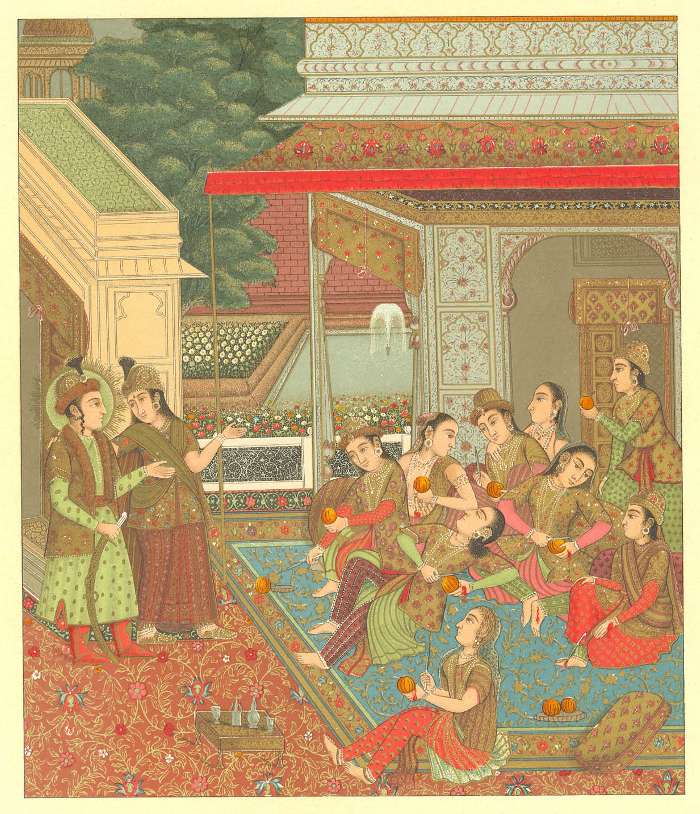FWP:
The verse presents us with a contrast: all (other?) lovers may be unhappy with their Rivals, but Zulaikha is pleased with hers. Her unusual attitude is not explained in any detail-- but of course, we're expected to recognize it as based on the finger-cutting incident from Qur'an 12:23-32, which is narrated by Bekhud Dihlavi. For a more detailed account of Zulaikha's situation, see {194,5}, especially Yusuf Ali's translation and discussion.
That's in fact where the verse gets its punch: while seeming to express wonder or even admiration at the mellow goodwill of Zulaikha toward her rivals, what the verse is really doing is reminding us of her bloody-mindedness. The reason she's happy with the women of Egypt is that they're in the act of cutting into their own fingers with sharp knives, and inflicting on themselves the further wounds of social embarrassment and humiliation as well. Zulaikha is now a winner, and a vengeful one at that.
So the verse turns right around, and we realize that she was, after all, no exception to the rule. She too was quite unhappy with her gossippy, sneering (potential, yet predestined) 'Rivals', so that she now takes a real (and perhaps sadistic?) delight in ensnaring and punishing them.
Note for grammar fans: In the first line, some people want to read hoñ as hūñ , making the first phrase mean 'I am unhappy with all the Rivals'. There's nothing to forbid this. But this unmotivatedly particular contrast (I am unhappy, but Zulaikha is happy) is much less natural and piquant than the more generalized one (everybody may be unhappy, but Zulaikha alone is happy).
Here's a depiction of the scene by Albert Racinet (Firmin Didot, Paris, 1888);
it's based on a miniature painting, and is a masterpiece of lithography:

Nazm:
sab doesn't mean all the Rivals, but rather, all lovers. That is, all lovers may be unhappy with Rivals, but Zulakiha is happy with the love of the women of Egypt: 'They used to taunt me-- they themselves, absorbed in the Moon of Canaan, have ended up cutting their hands'. (117)
== Nazm page 117